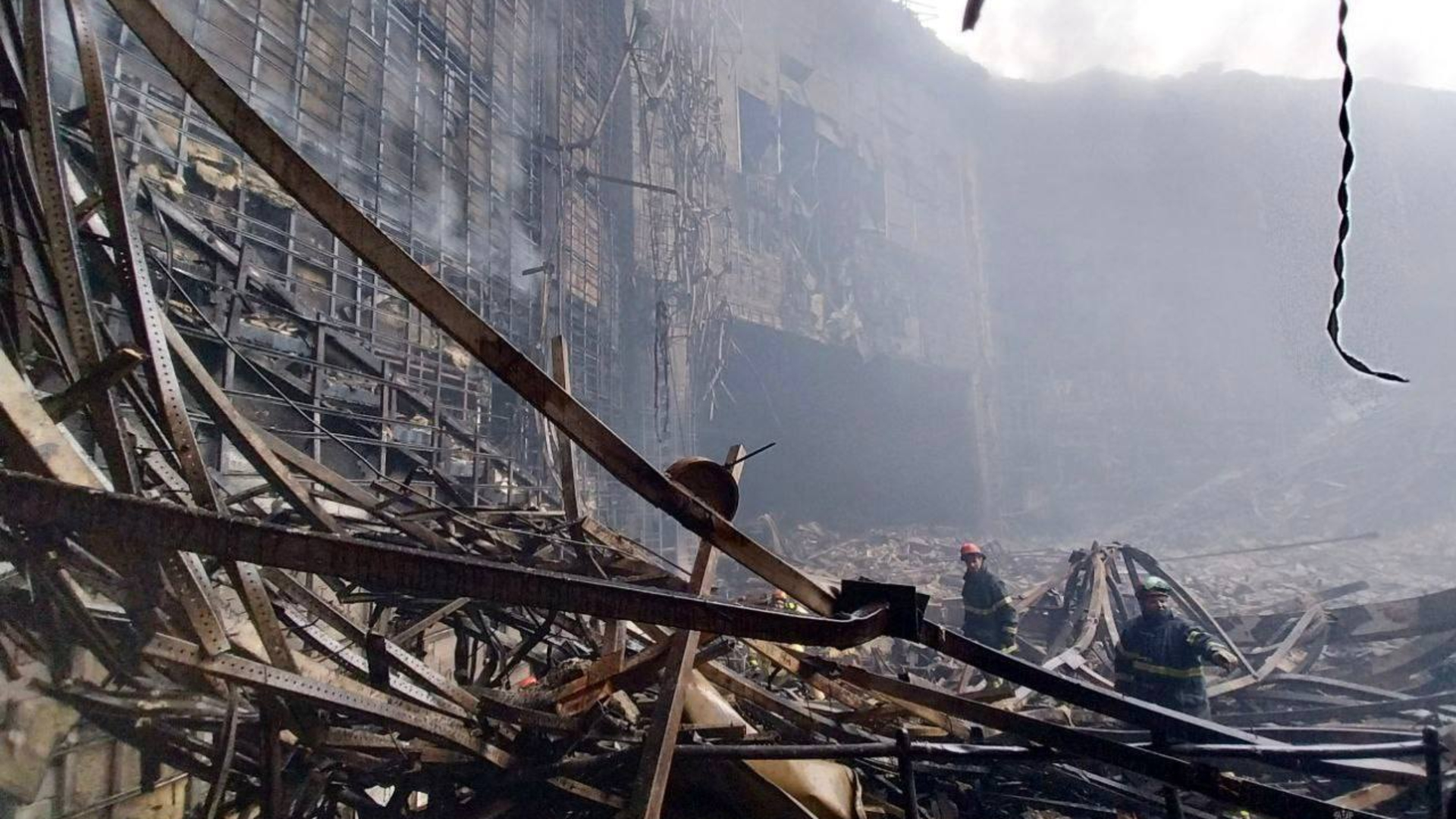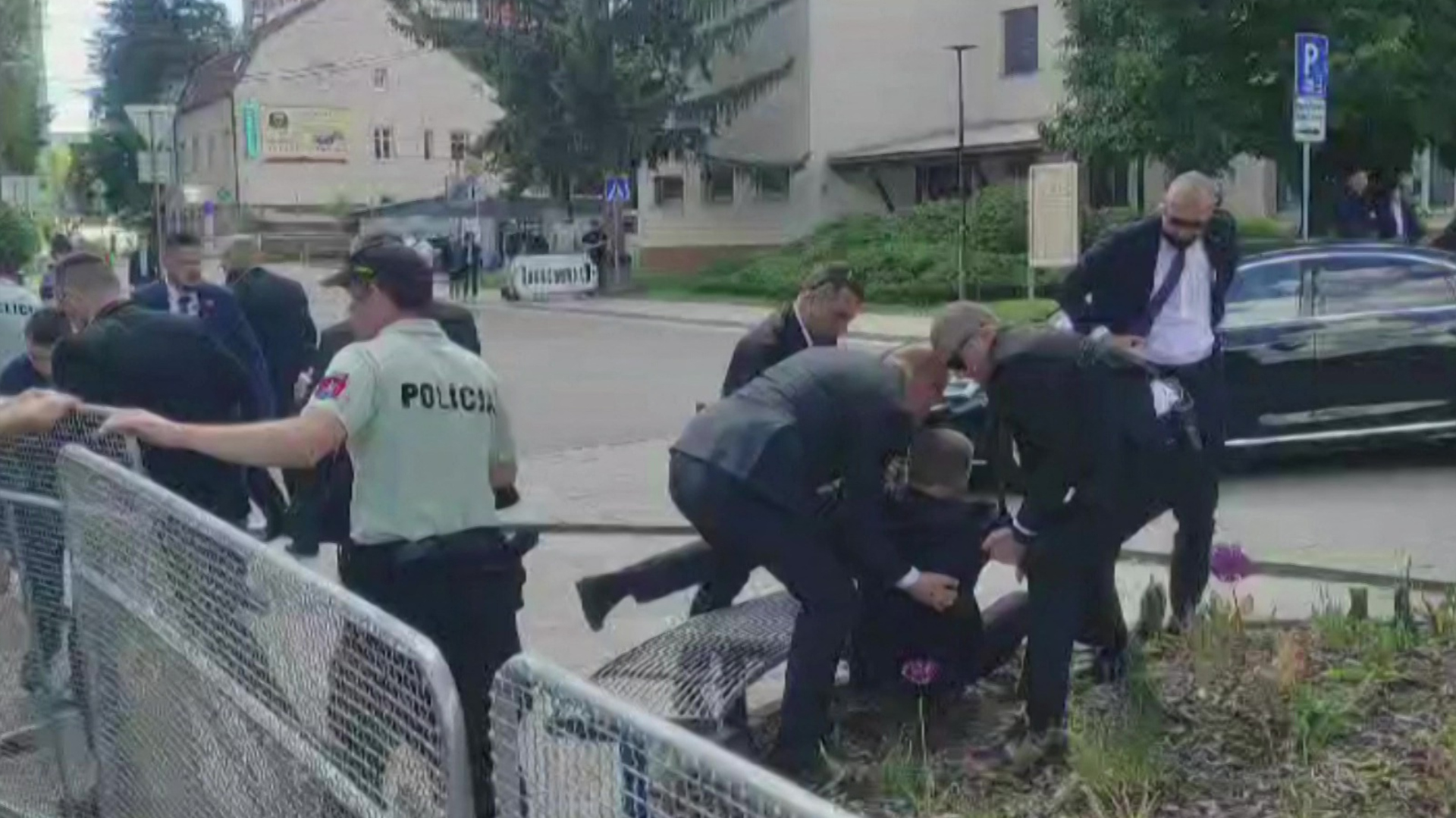The threat of violent extremism in Europe has been intensifying since Hamas launched its horrific assault on Israel on October 7. The first Olympic Games to be held in Paris for 100 years are likely to feature a pared-down opening ceremony, and European football is boosting security amid threats of attack by Islamic State (IS) ahead of the Euro 2024 tournament.
Political tension is on the rise, as evidenced by the shooting of the Slovakian prime minister, Robert Fico. Across the continent, police have been busting Islamist cells planning mass-casualty attacks. American security agencies fear that white supremacists and Islamist extremists could find common cause in their opposition to democratic government.
“The terrorist threat to Europe right now is actually quite high because you have an intersection of a range of disconnected but unfortunately mutually reinforcing events,” said Hans-Jakob Schindler, director of the Berlin- and New York-based Counter Extremism Project.
“October 7 changed the threat level from groups that didn’t really pose any threat on the European continent for many years. It’s definitely always been Islamist terrorism, but it’s not Islamist terrorism in all of its varieties from Hamas to al-Qaida. Usually it’s Islamic State, it’s al-Qaida, and it’s lone actors. Now you have Hamas, Hezbollah, lone actors, Islamic State, al-Qaida, the left wing, the right wing – all of them who could potentially see this large conglomeration of really soft targets.
“We have the threat that has been there all along, but because of October 7 has been fairly diligently pushed out of the headlines, and that’s the Islamic State threat,” he added.
“We have the extreme left wing, which has very clearly, openly and publicly sympathised and linked itself to the Palestinian issue since October 7 as part of this anti-imperialist struggle, with attacks against infrastructure in Germany in the last couple of months.
“And we have the new phenomenon of (far right) ‘active clubs’, which exist all over Europe, including France and Germany, which could see these big events as training opportunities.”
Intense multilateral security cooperation around the Olympics and Euro 2024 has already yielded results by disrupting extremist cells and diverting potential attacks. Such huge sporting events present opportunities, from city centre big screens and street parties to victory parades, all of which are vulnerable. It is all but impossible to prepare for every possibility.
Experts are struggling to recall such a confluence of security challenges. With attention focused on the Middle East – notably the humanitarian horror in Gaza – close observers see a gathering extremist storm, one that has largely evaded public attention and media scrutiny. That lack of attention exacerbates the danger – terror organisations need relevance, because that’s how they attract funds and recruits.
As Hamas, Hezbollah and the Yemeni Houthis hogged the limelight, analysts said a major threat to European security was coming from Afghanistan, where the Taliban, a violent and criminal Islamist group, took control almost three years ago and turned the country into a haven for transnational jihadists. Al-Qaida, always close to the Taliban leaders who gave Osama bin Laden space to launch the 9/11 attacks, has been laying low while its long-term patrons consolidate power.
Those atrocities inspired generations of Islamists. The Taliban’s return has given substance to the claim that bin Laden’s vision of a caliphate centred on Afghanistan is within reach, a highly motivating ideological goal. Events in the Middle East, where Iran and its proxies seek Israel’s destruction, are part of that plan.
Until October 7, little had come close to the grim acclaim that al-Qaida achieved in 2001, though the lesson every extremist learned that day was that “spectaculars” grab the headlines. Complex operations have become the modus operandi, and have grown to involve firearms, explosives, suicide vests, and multiple attackers, causing high numbers of deaths, huge damage, widespread panic, and often lasting many hours. Examples include the Bataclan Theatre attack in France, November 2015; the Manchester Arena bombing in 2017; the attack in Nice on Bastille Day, 2016; and the attack on Strasbourg’s Xmas market in 2018.
The IS group that claimed responsibility for the March attack on Moscow’s Crocus shopping and entertainment centre warned that it was just the beginning of a longer campaign. More than 140 people died in that incident and many hundreds more were injured.
IS-Khorasan Province, or ISKP, an offshoot of IS based in Afghanistan, is widely believed to have carried out the attack (though contrary to some media reports, it has not claimed responsibility). “Khorasan” refers to a historical region overlapping parts of what are now Afghanistan, Iran and Central Asia that ISKP apparently aims to reclaim as a borderless “caliphate”.
Two days after the Moscow attack, France’s prime minister, Gabriel Attal, said the Defence and National Security Council had raised the country’s terrorism alert to “attack emergency”, its highest level. Shortly after, IS issued threats against European Champions League football matches in Germany, Spain and England.
On April 12, the German authorities said that four people had been arrested for allegedly plotting attacks against churches and the police. German media reported that the teenagers “glorified Islamic State” and had “declared themselves ready” to carry out attacks. Security sources have linked them to ISKP.
Arrests of individuals and groups allegedly aligned with ISKP have taken place in Austria, Spain, Sweden and the Netherlands, and have included nationals from Turkmenistan, Kyrgyzstan, Tajikistan and Afghanistan. Some have been linked to known IS sympathisers; others have been more directly involved, in fundraising or recruitment.
The Moscow attack suspects were from Tajikistan. Security experts said the arrest of Central Asian nationals is a troubling sign of the spreading presence and influence of extremist ideology since the Taliban’s return. The attack in Moscow catapulted IS back into the terror game, and confirmed ISKP as the most active and dangerous jihadist group in the world.
The Taliban regards ISKP as a rival and regularly claims to have killed ISKP members. However, the Taliban is known to kill people associated with the fallen government and claim they were ISKP, rendering it a highly unreliable counter-terrorism partner.
The Taliban-ISKP rivalry is largely ideological – ISKP adopts a stricter Islamist stance, deriding the Taliban as heretical for seeking relations with western and non-Muslim countries, as well as for the corruption of its leaders.
The Taliban’s large-scale theft and diversion of international aid aims to buy the loyalty of followers and curtail defections to ISKP, which has between 4,000 and 6,000 fighters.
Analysts at the Combating Terrorism Center at West Point in the US described ISKP as strategically and operationally nimble, adept at “navigating rivalries” with other groups, including al-Qaida and the Taliban, while “simultaneously forging deep alliances” with other extremist groups, such as Lashkar-e-Jhangvi, which fights the Pakistani state.
According to the West Point experts, ISKP “has risen and faltered more than once, but has continued to adapt to changing circumstances since its official emergence in early 2015.”
ISKP’s presence in Afghanistan was confirmed in 2016 by Afghan military leaders after IS began seeding regional franchises following the defeat of its “caliphate” in Syria and Iraq. It has branches in Bangladesh, Egypt, Libya, the Philippines, and across Africa.
The Sydney-based Institute for Economics and Peace, in its 2023 Global Terrorism Index, said IS and its affiliates “remained the world’s deadliest terrorist group in 2022 for the eighth consecutive year, with attacks in 21 countries”.
Both US and Taliban forces fought ISKP in Afghanistan before the fall of the republic.
Just a day before the Moscow attack, US Army general Michael “Erik” Kurilla, commander of US Central Command, said the chaos in the Middle East had created a smokescreen for Afghanistan-based groups, and that attacks were imminent. “The risk of attack emanating from Afghanistan is increasing,” Kurilla told the House Armed Services Committee on March 21. “I assess [ISKP] retains the capability and the will to attack us and western interests abroad in as little as six months with little to no warning.”
Vladimir Putin derided and ignored US warnings that were effectively describing the Crocus attack weeks before it took place. Russia has refused to share details of the operation or intelligence from the arrested suspects, undermining security efforts elsewhere, sources in the sector said.
IS’s elevated status in the wake of the Moscow attack will put pressure on al-Qaida to show it remains relevant outside Africa.
Al-Qaida is reportedly once more deeply embedded in the Taliban’s administrative and security structures, running training camps for militants from across the Middle East and Africa. It also shares the proceeds of mining and drug trafficking with the Taliban’s acting minister of interior, Sirajuddin Haqqani. He leads the Haqqani network, straddles the leadership of both the Taliban and al-Qaida, and was closely linked to ISKP when it suited his purposes. The money helps to fund jihadist affiliates inside and outside Afghanistan.
“Al-Qaida will have to, sooner or later, ask the question whether they’re still relevant as a global network or whether they are now essentially an African network,” said Schindler of the Counter Extremism Project. “Are you still an ongoing concern or is the ideological battle with Islamic State already won?
“I see a clear pressure on al-Qaida to do something.”




